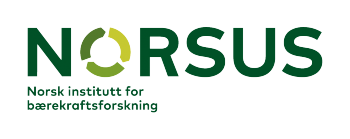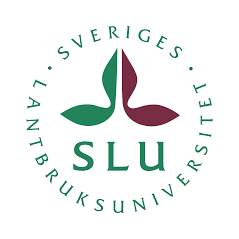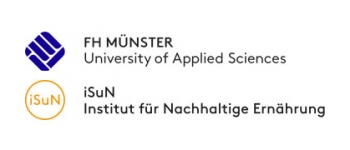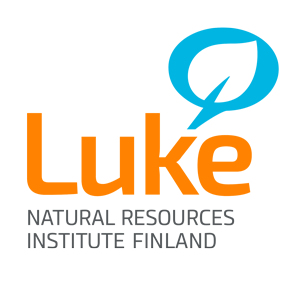WP3 Sustainability assessment
The main aim of WP3 is to assess food waste management solutions recommended from WPs 1 and 2. This will be done using Life Cycle Assessment and similar methodologies to calculate the environmental but also the economic and social impact from different actions preventing or valorising the food waste.
WP1 Best practices for food waste prevention
The project includes case studies in the serving sector in the participating countries.
Actions
It should not only be discussed, but we must also act! The AVARE project aims to reduce food waste and achieve the goal 12.3 of the Sustainable Development Goals. By interacting with partners of the out-of-home catering sector in stakeholder workshops and interviews a direct influence can be carried out. Due to the fact that these stakeholder workshops can reach a whole range of important players in the food service sector, the project AVARE focuses on this form of cooperation. The European project FUSIONS already proposed recommendations concerning policies, practices and effective approaches for food waste prevention and reduction in the EU (Website FUSIONS). Some actions were also suggested by the European project Refresh, which focused on the reduction of avoidable waste and improved valorization of food resources by taking an innovative, systemic approach to curb food waste through a holistic "Framework for Action" (Website Refresh). A focus in AVARE lies on the practical implementation of measurements in practice to detect and evaluate the efficiency of different actions.
06 December: Guideline for participation in the voluntary agreement “Reduction of food waste in the out-of-home sector”
With regard to the achievement of the German National Strategy for Food Waste Reduction, dialogue forums for different stages of the supply chain were established.
28 May 2021: Infosheets for schools and daycare targeting food waste reduction
Within WP5 the German research partner Institute for sustainable Nutrition developed infosheets, aiming to ta
2021 | Christopher Malefors | Food waste in the food service sector
11 January 2021: Invitiation for international workshop series
What is this workshop series about?
18 December 2020: CutFoodWaste2020
NORSUS, the norwegian research partner of the AVARE projekt was able to successfully complete a research project on food waste in the food and catering industry.
2020 | Daniele Matzembacher | Consumer’s food waste in different restaurants configuration: A comparison between different levels of incentive and interaction
Matzembacher, Daniele Eckert; Brancoli, Pedro; Moltene, Laís Maia; Eriksson, Mattias (2020)
2020 | Mattias Eriksson | Quantities and Quantification Methodologies of Food Waste in Swedish Hospitals
Eriksson, Mattias; Malefors, Christopher, Bergström, Pauline; Eriksson, Emelie; Persson Osowski, Christine (2020)
13 May 2020: AVARE online meeting
On the 13th of May the project partners of AVARE came together for the third project meeting.
2019 | Mattias Eriksson | What gets measured gets managed – Or does it?
Eriksson, Mattias; Malefors, Christopher; Callewaert, Pieter; Hartikainen, Hanna; Pietiläinen, Oona; Strid, Strid (2019)
09 October 2019: AVARE meeting in Berlin
On the 9th and 10th of October the project partners of AVARE met in Berlin for the second project meeting.
07 October 2019: Survey on food waste by the Institute for sustainable Nutrition
The German research partner Institute for sustainable Nutrition started a survey which examines efficient measurements for reducing
26 April 2019 Presentation: Food waste within the Swedish public sector
The "Conference on Food Waste Prevention and Management" organized by the STREFOWA initiative took place on the 25 and 26th of April in Vienna.
02 April 2019: Presentation "Quantification and actions in food services"
At the Swedish-Brazilian food waste knowledge exchange workshop introduced Mattias Eriksson (SLU) c
06 May 2019: First results of case studies in Germany
The Institute of sustainable Nutrition in Münster (Germany) finished food waste measurements in three schools.
2018 | Mattias Eriksson | Identification and modelling of risk factors for food waste generation in school and pre-school catering units
Stehen, Hjördis; Malefors, Christopher; Röös, Elin, Eriksson, Mattias (2018)
2017 | Mattias Eriksson | From quantification to reduction - identification of food waste reduction strategies in public food services
Malefors, Christopher; Eriksson, Mattias; Persson Osowski, Christine (2017)
2017 | Christina Strotmann | Comparing Food Provided and Wasted before and after Implementing Measures against Food Waste in Three Healthcare Food Service Facilities
Strotmann, Christina; Friedrich, Silke; Kreyenschmidt, Judith; Teitscheid, Petra; Ritter, Guido (2017)
2017 | Christina Strotmann | A Participatory Approach to Minimizing Food Waste in the Food Industry – A Manual for Managers
Strotmann, Christina; Göbel, Christine; Friedrich, Silke; Kreyenschmidt, Judith; Ritter, Guido; Teitscheid, Petra (2017)
26 February 2019: WP1 meeting in Oslo. Presentation of national strategies and discussion of data evaluation and case studies
The further approach of working package 1 “Best practices for food waste prevention” was discussed. Considering data and r
20 February 2019: Mattias Eriksson presents AVARE in Berlin
The German Federal Ministry of Food and Agriculture started “Too good for the bin – Dialogue on the prevention of food waste in out of home catering”.
Contact
Fachhochschule Münster
Institut für Nachhaltige Ernährung (iSuN)
Corrensstraße 25
48149 Münster
Tel. +49 251 83-65570
isun()fh-muenster()de
ERA-Net SUSFOOD2
The project AVARE "Adding value in resource effective food systems" is a transnational project of the ERA-Net SUSFOOD2, funded by national funding agencies – Ministry of Agriculture and Forestry, Finland, Federal Ministry of Food and Agriculture, Germany, The Research Council of Norway and Formas, The Swedish Research Council – and co-funded by the European Union´s Horizon 2020 research and innovation programme.







